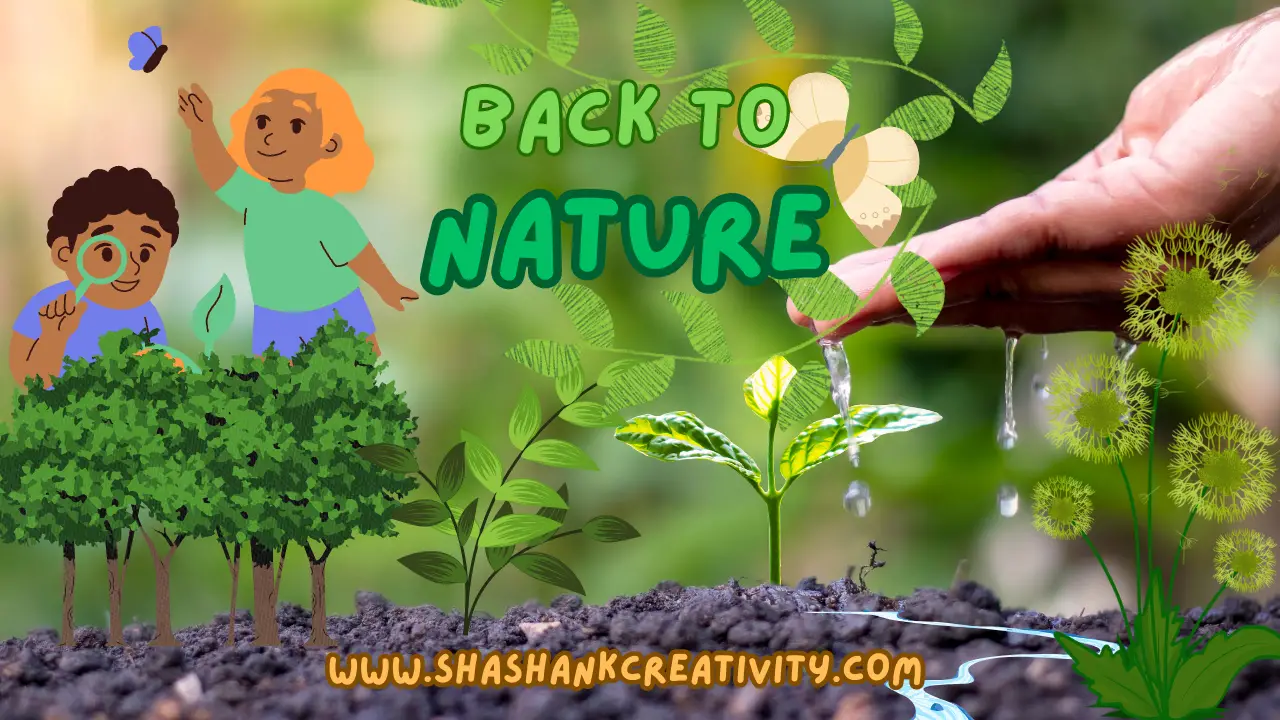India is one of the most populous and fastest-growing countries in the world, but also one of the most polluted. According to a study in The Lancet, air pollution caused nearly 1.6 million deaths in India in 2019 alone. The country's capital, New Delhi, is regularly shrouded in smog, with vehicle emissions, industrial activities, agricultural burning and dust storms contributing to the poor air quality.
In today's fast-paced and technology-driven world, it can be easy to lose touch with nature and its many benefits. We often spend more time indoors, staring at screens, and surrounded by artificial lights and sounds. This can have negative effects on our physical and mental health, such as increased stress, anxiety, depression, insomnia, obesity, and chronic diseases.
However, there is a simple and effective way to counteract these problems: reconnecting with nature. Nature can provide us with a sense of calm, wonder, and joy. It can also improve our mood, memory, creativity, and immune system. By spending more time in natural settings, we can enhance our well-being and happiness.
But how can we reconnect with nature in our busy lives? Here are some tips to help you get started:
- Spend at least 20 minutes a day outdoors. This can be as simple as taking a walk in your neighborhood park, sitting in your backyard, or gardening. You can also try to incorporate nature into your daily routine, such as walking or biking to work, eating lunch outside, or taking a break in a green space.
- - Explore new places. If you have more time and resources, you can visit different natural environments, such as forests, mountains, lakes, beaches, or deserts. You can also plan a camping trip, a hiking adventure, or a wildlife safari. These experiences can help you appreciate the beauty and diversity of nature and its creatures.
- - Connect with other nature lovers. You can join a local group or organization that organizes outdoor activities or environmental projects. You can also invite your friends or family to join you in your nature outings. Sharing your experiences and feelings with others can deepen your connection with nature and with each other.
- - Learn more about nature. You can read books, watch documentaries, listen to podcasts, or take courses about nature and its wonders. You can also learn new skills or hobbies that involve nature, such as birdwatching, photography, painting, or gardening. Learning more about nature can increase your curiosity and appreciation for it.
- - Respect and protect nature. You can show your gratitude and care for nature by following some simple rules: leave no trace behind when you visit natural places; avoid littering, polluting, or harming wildlife; use natural resources wisely and sustainably; support conservation efforts and initiatives; and advocate for environmental causes.
Reconnecting with nature is not only good for us but also for the planet. By developing a deeper bond with nature, we can also become more aware of its challenges and threats. We can also become more motivated and inspired to take action to protect and preserve it for ourselves and future generations.
Nature is our home, our source of life, and our greatest teacher. Let's go back to basics and reconnect with it today!
Pollution, 10 ways to control soil pollution, 10 ways to reduce pollution, 5 effects of water pollution, 5 types of pollution, 5 ways to control noise pollution, About land pollution, Air pollution control devices, Air pollution effects on humans, Air pollution facts, Environmental pollution control, Examples of soil pollution,
